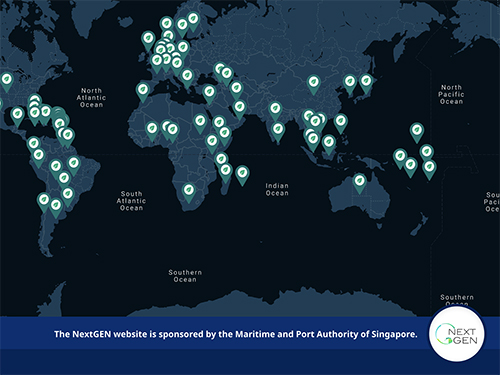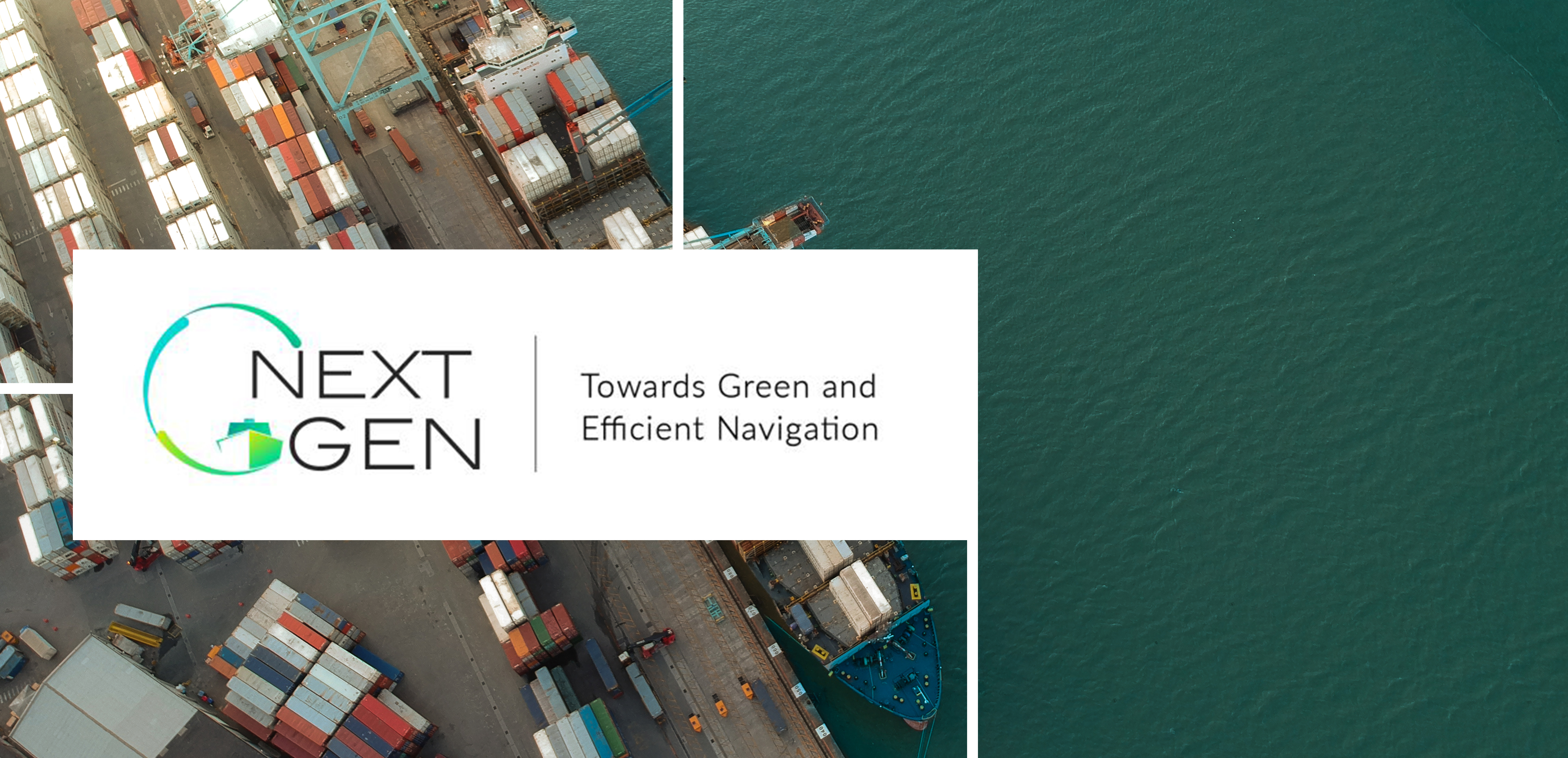IMO-Singapore searchable web portal compiles maritime transport decarbonisation initiatives for collaboration and cooperation.

NextGEN (where "GEN" stands for "Green and Efficient Navigation") is an important initiative to support the maritime sector's push towards the "next generation" of low and zero-carbon fuels and technologies.
The NextGEN web portal, an online collaborative global ecosystem of maritime transport decarbonisation initiatives, has been launched by the International Maritime Organization (IMO) and the Maritime and Port Authority of Singapore (MPA).
NextGEN - which can be found at NextGEN (imo.org) – brings stakeholders together to identify the gaps and opportunities for decarbonisation in the international shipping community. The portal has been developed to serve as a circle of collaboration and a single portal to bring different stakeholders involved in maritime decarbonisation projects. These include ports, governments, companies, research institutes, to share knowledge on low- and zero-carbon fuels.
The NextGEN portal aims to encourage information-sharing, create critical networks and opportunities for collaboration, and facilitate capacity-building. By showcasing the universe of maritime decarbonisation projects on a single platform, the NextGEN portal will serve as a focal point and reference tool for public and private stakeholders.
The NextGEN portal was launched during the IMO-United Nations Environment Programme (UNEP) event held from 27th to 29th September. (Read more here.) The three-day online global platform aims to champion innovation to accelerate the maritime sector's transition to a zero-and-low emission future. The forum is providing a platform for sharing and transferring knowledge associated with the shipping industry's transition to decarbonization. The focus for the forum is on developing countries, in order to include their shipping communities in this collective challenge.
IMO Secretary-General Kitack Lim said, "The single biggest challenge we face is the battle against global warming and climate change. We need more collaborative action to speed up research into emission-cutting technology in the maritime sector and into zero- and low-carbon marine fuels. Above all, we need to make sure we leave no one behind."
Ms Quah Ley Hoon, Chief Executive, MPA, said, "We cannot tackle decarbonisation alone. We need to work together, across borders and value chain, to build capacity, share best practices and ensure a level playing field for all. By bringing ideas and stakeholders together, NextGEN builds on the key principle of inclusivity."
NextGEN (where "GEN" stands for "Green and Efficient Navigation") is an important initiative to support the maritime sector's push towards the "next generation" of low and zero-carbon fuels and technologies. The Initial IMO GHG Strategy, adopted in 2018, has set key ambitions to reduce greenhouse gas (GHG) emissions from international shipping by at least 50% by 2050 compared to 2008. A revised strategy is set to be adopted by 2023.
It is recognized that the maritime sector will face challenges reaching the ambitious decarbonisation targets, given the current levels of technological development in low and zero-carbon fuels. Information sharing and knowledge sharing are critical.
The NextGEN portal already encompasses over 140 projects spanning over 500 partners, 13 fuel types. Regions covered include Africa, the Caribbean, Latin America, the Middle East and the Pacific Islands.
NextGEN also spotlights global collaborative GHG projects led by IMO that include technical assistance, technology transfer and capacity-building.
The inaugural NextGEN meeting was held in Singapore in April 2021, during the Future of Shipping Conference (23 April), jointly organized by IMO and the Maritime and Port Authority of Singapore (MPA).
***
About the International Maritime Organization (IMO)
IMO – the International Maritime Organization – is the United Nations specialized agency with responsibility for the safety and security of shipping and the prevention of marine and atmospheric pollution by ships. IMO's work supports the UN SDGs.
IMO is contributing to the global fight against climate change. IMO has adopted mandatory measures to cut emissions. In 2018, IMO adopted an initial strategy on reduction of GHG emissions from ships. IMO projects promote innovation and support developing countries, especially small island developing States (SIDS) and least developed countries (LDCs).
For media queries, please contact:
Ms Natasha Brown
Acting Head, Public Information Services
Email: nbrown@imo.org
Email: media@imo.org
About the Maritime and Port Authority of Singapore (MPA)
The Maritime and Port Authority of Singapore (MPA) was established on 2 February 1996, with the mission to develop Singapore as a premier global hub port and International Maritime Centre (IMC), and to advance and safeguard Singapore's strategic maritime interests. MPA is the driving force behind Singapore's port and maritime development, taking on the roles of Port Authority, Port Regulator, Port Planner, IMC Champion, and National Maritime Representative. MPA partners the industry and other agencies to enhance safety, security and environmental protection in our port waters, facilitate port operations and growth, expand the cluster of maritime ancillary services, and promote maritime R&D and manpower development.
For media queries, please contact:
Ms Joanna Chen
Corporate Communications, Maritime and Port Authority of Singapore
Mobile: 9154 3781
Email: joanna_chen@mpa.gov.sg
